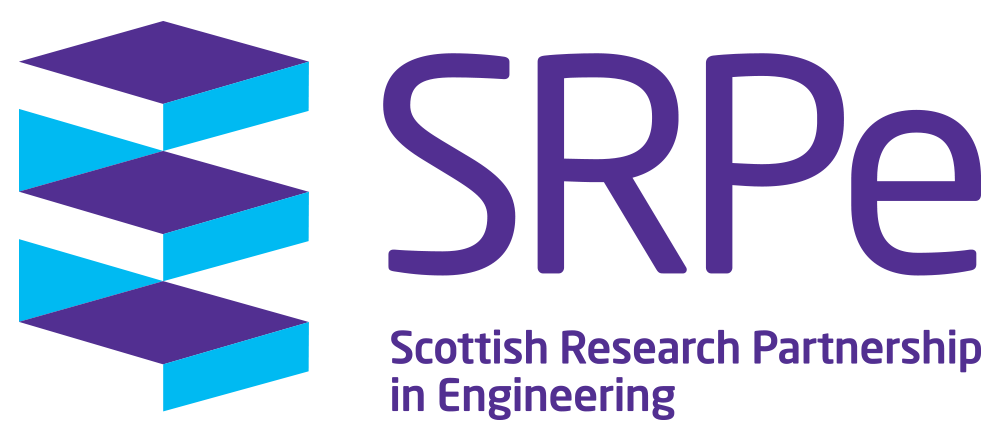Robotics & Autonomous Systems
Thematic Leadership Group
The SRPe Robotics & Autonomous Systems Thematic Leadership Group (RAS-TLG) is a national strategic research resource that provides expertise to government, industry and the wider UK and international research community.
The RAS-TLG membership comprises key experts from across Scotland's leading universities delivering world-class research and development at the interface between engineering and healthcare and its underpinning technology areas.
Leadership and membership details of the RAS-TLG are provided below:
CHAIR: Professor Gareth Pierce
Professor, Electrical & Electronic Engineering, University of Strathclyde
Members
Professor Adam Stokes
Personal Chair in Bioinspired Engineering & Deputy Head for Institute of Integrated Micro and Nano Systems
University of Edinburgh
Professor Emma Hart
Chair, Nature-Inspired Intelligent Systems Group
Edinburgh Napier University
Professor Qammer Abassi
Theme Lead, Connecting People at James Watt School of Engineering & Deputy Theme Lead Quantum Technologies Advance Research Centre, University of Glasgow
Dr Ibrahim Kucukdemiral
Reader, Deptartment of Applied Science, Glasgow Caledonian University
Professor Sumeet Aphale
Personal Chair , School of Engineering, University of Aberdeen
Dr Somasundar Kannan
Lecturer, Electronic & Electrical Engineering, Robert Gordon University
Dr William Lewinger
Lecturer in Mechanical and Industrial Engineering,
University of Dundee
Dr James Riordan
Reader, School of Computing, Engineering and Physical Sciences, University of the West of Scotland.
Professor Yvan Petillot
Professor of Robotics and Computer Vision, School of Engineering & Physical Sciences, Heriot-Watt University
Claire Ordoyno
Executive Director, Scottish Research Partnership in Engineering (SRPe)
Strategic Outlook
Building upon the research excellence of Scotland’s universities in Robotics & Autonomous Systems (RAS) and Artificial Intelligence (AI) Scotland is uniquely positioned to capitalise on the RAS and AI revolution to produce major societal and economic benefits.
It is estimated that there will be a £13 billion global market for
robotics and autonomous systems by 2025*.
Scotland has significant opportunity and major economic growth potential in areas such as Nuclear Decommissioning, Space Robotics, Asset Integrity Management for Oil& Gas and Nuclear Sectors, Deep Mining, Therapeutic and Rehabilitation Robots, Assistive & Social Robotics, Medical Robotics, Advanced Manufacturing, Autonomous Transport, Environmental Monitoring, Robotics for Emergency Response, Disaster Relief and Resilience, Construction, Logistics and Smart Delivery, and Defense applications such as Surveillance and Human Support In Field.
Sub-Themes
Our Sub-Themes align with the grand challenges and opportunities within the Robotics and Autonomous Systems theme and its application sectors. They align with the strengths & capabilities of Scotland in Robotics and Autonomous Systems and the opportunities for growth and synergy which can be catalysed via SRPe collaboration across the university research sector and with industry and public sector. They reflect the challenges and opportunities that exist today and are anticipated for the future based on knowledge of megatrends (e.g. growing demand for customised products; ageing population and workforce; changing skills needs), technological trends / innovations (emerging / disruptive technologies e.g. the Internet of Things (IoT); digitalisation & scale-up), emerging policies and opportunities for economic growth / socio-economic impact.
SRPe's Sub-Themes within the Robotics and Autonomous Systems Theme are:
Extreme & Hazardous Environments (e.g. Nuclear Decommissioning, Space Robotics, Asset Integrity Management for Oil, Gas and Nuclear Sectors, Deep Mining)
Transforming Healthcare and Improving the Quality of Life (Therapeutic and Rehabilitation Robots, Assistive & Social Robotics., Medical Robotics)
Factories of the Future (Advanced Manufacturing, COBOTS)
Resilient and Smart Infrastructure (Autonomous Transport, Environmental Monitoring, Robotics for emergency response, disaster relief and resilience, Construction, Logistics and Smart Delivery)
Defense (Surveillance, Human Support In Field)
Key Underpinning Research & Technology Areas
The key research and technology areas underpinning the Robotics & Autonomous Systems Theme are:
Micro, Nano and Soft-Robotics
Design and Manufacturing of Robotic Systems
Robot Perception and Navigation
Actuation and Manipulation
Robotic Human Augmentation
Cognition and AI for Autonomous System Behavior
Human–Robot Interaction
Certification
Dependability, Longevity and Safety
Social and Ethical Impact of RAS
Artificial Intelligence











